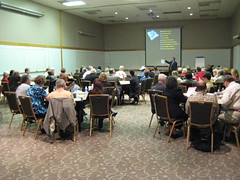In a recent report, Jones Lang LaSalle said that Mumbai seems to be in a tighter spot with Rs275 billion being sunk in land since FDI (foreign direct investment) was allowed in real estate in 2005; most of which has failed to yield returns. Even many investments done in South Bombay once named as one of the hottest and costliest property location in the world have met the same fate. Read Mumbai has sunk Rs275 billion in lands since 2005, the reason is known to all. Sky high prices have put off customers. In Mumbai, an average flat costs more than Rs10,000 per sq. ft. and even in Navi Mumbai, in less populated areas, there are many projects that have flats priced at over Rs1 crore.
Add to that the confusion created by the new DCR (development control rules). Many builders now have to make fresh plans to accommodate the proposed changes about FSI; and the worst affected are those whose projects are already underway. Many of the launches have been put on hold, and construction has been stalled in many places. And for people who have already invested in these projects, the longer the deadlock lasts, the more they have to pay.
Buy or not to buy? Despite a profusion of analyses and research reports on housing prices and their future direction, home buyers remain as confused as ever. So it is little wonder that 37 lakh of flats remain vacant in Maharashtra, of which 4.79 lakh are in Mumbai. The Census Directorate data says that even Thane district has more than 5 lakh vacant flats.
“Why doesn’t the government or RBI (Reserve Bank of India) understand that the more they squeeze liquidity by raising interest rates, it raises returns on black investments even higher. If our country can bring down black element out of property, rents will fall, property prices will fall,” said a commentator.
The home-buyer, however, is at a loss. The Budget came as a flop, and a recent Crisil report says that prices of steel and cement will go up, which will probably be passed down to the end-user. And then, there is the proposal to hike on leave-license, which is going to make rentals expensive. There are some who expect matters to improve.
Pankaj Kapoor, MD, Liases Foras also had echoed similar thoughts. “The high prices are not fault of only the builders. The hike in stamp duty was uncalled for and it is too revenue-centric and indicates a short term vision.” Read Maharashtra Stamp duty hike: “Neither can you afford to own a home, nor take it on rent”
However, as most experts say, one can buy a home any time. “You never know what will happen next. And honestly, there is little evidence to suggest that customers have waited for better home loan or price options when they have to buy a home—because it is a necessity. So if you want to own a home, there is no bad time,” said an analyst.
